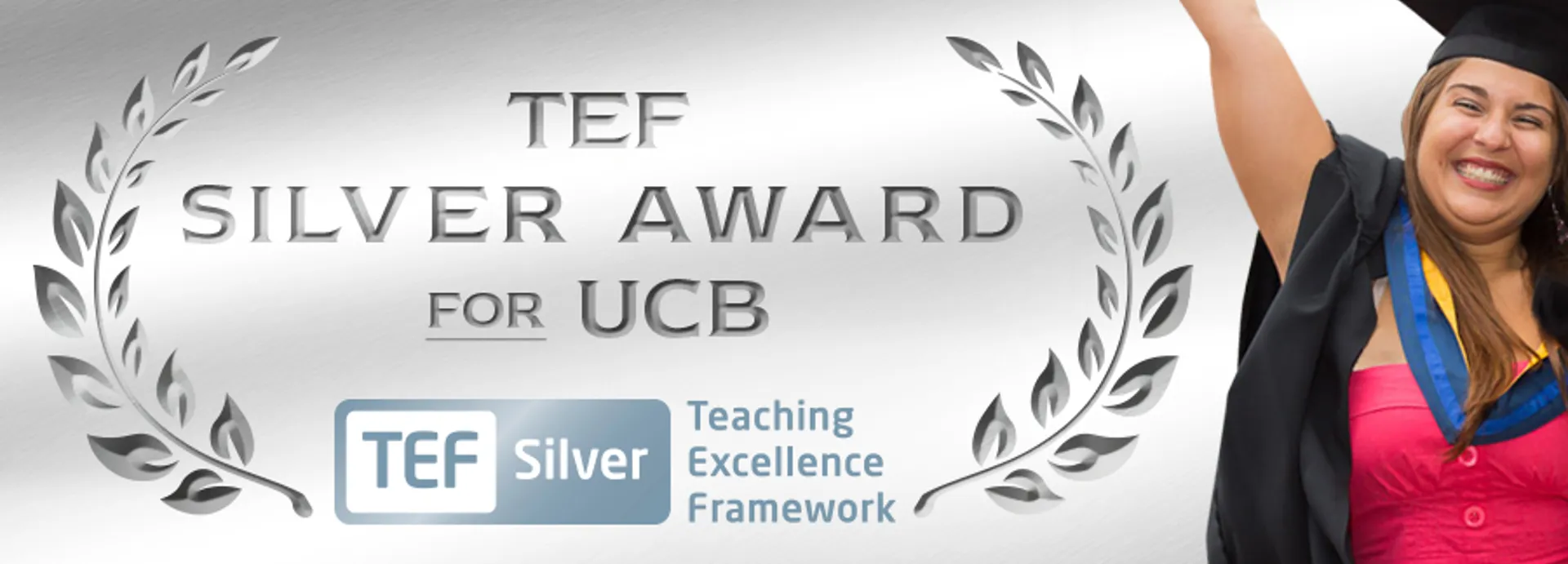June 2017
UCB celebrates silver award in new higher education assessment
Read time: approx 1 mins
University College Birmingham has been awarded silver for the quality of its teaching in the Government’s new higher education grading assessment published today.
The ethnically-diverse, specialist University was praised in the Teaching Excellence Framework for “achieving excellent outcomes for all students with regard to progression to highly skilled employment or further study, which are notably above benchmark.”
UCB was also recognised for providing a culture that “facilitates, recognises and rewards excellent teaching through processes of peer observation and working with employers to support staff needs.”
The silver award reflects UCB’s record on vocational training and education, and widening participation in higher education for students from non-traditional university backgrounds. The University is the second largest provider of foundation degrees in the UK, offering wide-ranging and supported opportunities for degree progression and the acquisition of additional knowledge and skills.
The rankings, ranging from bronze to gold, were awarded by a panel of assessors based on statistics including university dropout rates, student satisfaction survey results and graduate employment rates.
Professor Ray Linforth, the University’s Vice-Chancellor and Principal, said: “We are delighted to be awarded silver based on the quality of our teaching, which reflects the tremendous hard work and dedication of our staff and students.
“UCB is committed to boosting educational opportunities for all members of society, regardless of background. The Teaching Excellence Framework recognises our high levels of student satisfaction and the successful progression of students from foundation degrees and first degrees to further study and employment.
“We are a teaching-focused university and a lot of work has been put into the continuing professional development of staff in order to deliver the best possible student experience for our undergraduates.
“The silver award vindicates our teaching focus and methods, but it is also worth noting that UCB enjoys a strong reputation for the inclusive nature of study and the support we offer to ensure individual students achieve their goals. Great teaching goes hand-in-hand with great facilities and the University is currently in the middle of a £100 million capital investment programme aimed at delivering the best learning environment for our students.”
For silver, a university must achieve excellent outcomes for its students, in particular with regards to retention and progression to highly skilled employment and further study. Course design and assessment practices provide scope for high levels of stretch that ensures all students are significantly challenged, and acquire knowledge, skills and understanding that are highly valued by employers.
Silver also recognises appropriate levels of contact time, including personalised provision, and the use of “high quality physical and digital resources” to enhance learning.
In its 15-page narrative submitted to Teaching Excellence Framework (TEF) assessors, UCB highlighted its record on access to higher education and widening participation. Data from the Higher Education Statistics Agency shows 97.9% of young, full-time, first degree students are from state schools, well above the performance of similar institutions and the national average.
Similarly, of the TEF full-time cohort of UCB students, 40.23% are from low participation or deprived neighbourhoods – and the figure rises to 48.18% for part-time students. Almost half (49%) of student are local to UCB, including young people from some of the most deprived inner city wards in the country. Recruitment among black, Asian and minority ethnic communities is high at 56.34%.
UCB’s submission to TEF said: “UCB is a teaching university that works collaboratively with employers to ensure that students are fully prepared for sustainable careers in the industries that underpin its specialisms.
“UCB’s purpose is to provide access to further and higher education to those who may not have considered themselves otherwise able, and to support them to achieve their potential.”
